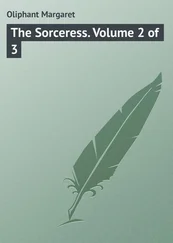Margaret Oliphant - The Ladies Lindores. Volume 2 of 3
Здесь есть возможность читать онлайн «Margaret Oliphant - The Ladies Lindores. Volume 2 of 3» — ознакомительный отрывок электронной книги совершенно бесплатно, а после прочтения отрывка купить полную версию. В некоторых случаях можно слушать аудио, скачать через торрент в формате fb2 и присутствует краткое содержание. ISBN: , Жанр: foreign_prose, на английском языке. Описание произведения, (предисловие) а так же отзывы посетителей доступны на портале библиотеки ЛибКат.
- Название:The Ladies Lindores. Volume 2 of 3
- Автор:
- Жанр:
- Год:неизвестен
- ISBN:http://www.gutenberg.org/ebooks/47592
- Рейтинг книги:5 / 5. Голосов: 1
-
Избранное:Добавить в избранное
- Отзывы:
-
Ваша оценка:
- 100
- 1
- 2
- 3
- 4
- 5
The Ladies Lindores. Volume 2 of 3: краткое содержание, описание и аннотация
Предлагаем к чтению аннотацию, описание, краткое содержание или предисловие (зависит от того, что написал сам автор книги «The Ladies Lindores. Volume 2 of 3»). Если вы не нашли необходимую информацию о книге — напишите в комментариях, мы постараемся отыскать её.
The Ladies Lindores. Volume 2 of 3 — читать онлайн ознакомительный отрывок
Ниже представлен текст книги, разбитый по страницам. Система сохранения места последней прочитанной страницы, позволяет с удобством читать онлайн бесплатно книгу «The Ladies Lindores. Volume 2 of 3», без необходимости каждый раз заново искать на чём Вы остановились. Поставьте закладку, и сможете в любой момент перейти на страницу, на которой закончили чтение.
Интервал:
Закладка:
"That has proved itself, Sir James. Nobody pretends to say it did not work well."
"Then why change it?" said the old man. "And about your hospitals and things. When there was a poor natural, as they call it, in a village, everybody was good to the creature; and do you think the honest folk that had known it all its life would not put up with it, and feel for it, more than servants in an hospital? When we had a burden to bear, we bore it in those days, and did the best we could for our own. We didn't shuffle them off on the first person's shoulders that would take them up."
All this John had brought upon himself by his reference to Lord Lindores's scheme. Whatever might be well with respect to the election, he had felt that there could be but one voice in respect to a hospital; but John had soon been convinced that in that respect also there certainly was more than one voice.
"But I suppose," he said, feeling somewhat confused by this style of reasoning, for it was not a subject upon which the young man had thought for himself, – "I suppose, for the suffering and miserable – for those out of the common line of humanity, more badly off, less capable than their neighbours – hospitals are necessary."
"Let those that belong to them care for them, sir," cried Sir James. "I'm saying it in no hard-hearted way. Do you not think that when a trouble is sent upon a family, it's far better for the family to make a sacrifice – to draw close together, to bear it, and take care of their own? That's always been my opinion – that was the practice long syne. If ye had a thorn in the flesh, ye supported it. When one was ill, the rest took care of him. There were no hired sick-nurses in those days. When ye had a fever, your mother nursed you. If you were blind or lame, every one would give you a little, and nobody grudged your meat or your drink. And that was how Scotland was kept so independent, and the poor folk hated debt and beggary. Once you give your own duty over to other folks, you sacrifice that," the old soldier said, with conviction. Sir James was of the class of men who are never more entirely at home than when they are exercising the duties of beneficence – the sort of men who manage hospitals and establish charities by nature. Had the county hospital been existing, he it was, and not Lord Lindores, who would have given time and trouble to it; but Sir James was as full of prejudices as a hearty, healthy old gentleman has a right to be. He would not give in to the new thing; and his arguments were shrewd, although he himself would have been the last to be bound by them. He would have taken the burden off a poor man's shoulders and carried it himself without a compunction. Saying is one thing and doing another, all the world over; only it is usual that people profess not less, but more, benevolent sentiments than are natural to them. Sir James took the other way.
"You must excuse me saying," the old general went on, "that you must not trust too much to Lord Lindores. Part of it is political, there is no doubt about that. He's wanting to get a character for being public-spirited and a useful member of his party. They tell me he's thinking of bringing in his son in the case of an election, but that would never do – that is to say, from my point of view," said Sir James, laughing; "you're on the other side? – ah, to be sure, I had forgotten that. Well, I suppose we're all meaning the same thing, – the good of the country; but depend upon it, that's not to be procured in this way. The Lindores family are very excellent people – very worthy people; but they're new-fangled – they have lived abroad, and they have got foreign notions into their heads."
"Benevolent institutions are, above all others, English notions – or so, at least, I have always heard," John said.
This brought a slight flush on the old man's cheek. "Well, I believe you are right – I think you are right. I will not go against that. Still it is a great pity to bring foreign notions into a quiet country place."
They were walking up and down the lawn at Chiefswood, where a party of country neighbours were about to assemble. It was a kind of gathering which had scarcely been acclimatised in the North; and the pleasure of sitting out, though the seats were comfortably arranged in the most sheltered spot, was at the best an equivocal one; but fortunately the drawing-room, with its large bright windows overlooking the scene of the gentle gaieties provided for, was behind, and there already some groups had collected. John Erskine, without being aware of it, was the hero of the feast. He was the new-comer, and everybody was willing to do him honour. It was expected that he was to be the chief performer in those outdoor games which were not yet very well known to the young people. And it was somewhat disconcerting that he should have chosen this moment to discourse with old Sir James upon the county hospital, and the poor lunatics and imbeciles of the district, for whose benefit Lord Lindores was so anxious to legislate. Had it been any other subject, the old general would have dismissed the young man to his peers, for Sir James had a great notion that the young people should be left to entertain each other. But as it happened, the theme was one which had disturbed his genial mind. He was vexed at once in his prejudices, and in his honest conviction that the county, to which he was so glad to get back after his long exile, was the best managed and most happy of districts. He had found nothing amiss in it when he came home. It had been welcome to him in every detail of the old life which he remembered so well. There were too many changes, he thought, already. He would have liked to preserve everything. And to have it suggested by a new gingerbread, half-English, half-foreign intruder, with all the light-minded ways that belonged to the unknown races on the Continent, that the beloved county wanted reorganisation, almost betrayed the old man into ill-humour. The guests kept arriving while he talked, but he talked on, giving forth his views loosely upon general questions. "We're going the wrong road," he said, "aye seeking after something that's new. The old way was the best. Communistic plans are bad things, whatever ye may say for them; and shuffling off your sick and your poor on other folk's hands, and leaving them to the public to provide for, what's that but communism? You'll never get me to consent to it," Sir James said.
"Where is the general?" Lady Montgomery was saying in the drawing-room. "Bless me! has nobody seen Sir James? He cannot expect me to go out without my bonnet, and get my death of cold setting all the young people agoing. No, no, I told him that. I said to him, you may put out the chairs, but if you think Barbara Erskine and me, and other sensible women, are going to sit there in a May day and get back all our winter rheumatism, you are mistaken, Sir James. But now, where is the general? Nora, you must just go and look for him, and say I'm surprised that he should neglect his duty. When I yielded to this kind of party, which is not my notion of pleasure, I told him plainly he must take the lawn part of it upon his own hands."
"And where's my nephew John?" said Miss Barbara Erskine, who sat in one of the seats of honour, within pleasant reach of a bright fire. "Nora, when you look for Sir James, you'll look for him too. I'm affronted, tell him, that he was not the first to find me out."
"I hear Mr Erskine is a great friend of the Lindores," said Mrs Sempill. "Having no son at home, I have not had it in my power, Miss Barbara, to show him any attention, but I hoped to make his acquaintance to-day. They tell me he knew the Lindores well in their former circumstances. That is, no doubt, a fine introduction for him to the county."
"If an Erskine of Dalrulzian wanted any introduction," said Miss Barbara, "it would be a very ill one, in my opinion. For there are as many that think ill of them as there are that think well of them, and they're not our kind of people. But John Erskine wants nobody to introduce him, I hope. His father's son, and my father's great-grandson, should have well-wishers enough."
Читать дальшеИнтервал:
Закладка:
Похожие книги на «The Ladies Lindores. Volume 2 of 3»
Представляем Вашему вниманию похожие книги на «The Ladies Lindores. Volume 2 of 3» списком для выбора. Мы отобрали схожую по названию и смыслу литературу в надежде предоставить читателям больше вариантов отыскать новые, интересные, ещё непрочитанные произведения.
Обсуждение, отзывы о книге «The Ladies Lindores. Volume 2 of 3» и просто собственные мнения читателей. Оставьте ваши комментарии, напишите, что Вы думаете о произведении, его смысле или главных героях. Укажите что конкретно понравилось, а что нет, и почему Вы так считаете.












